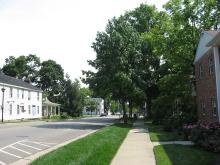Springboro, Ohio Hopes to Spur Competition and Economic Growth with Conduit Loop
After years of fielding complaints from residents about the speed, reliability, and poor customer service of the city’s single wireline broadband provider, Springboro, Ohio (pop. 19,000) has decided enough is enough. Over the next year, the city (situated ten miles south of Dayton) will build a 23-mile fiber loop for municipal services and, at the same time, lay five additional conduits to entice additional Internet Service Providers (ISPs) to come in and offer service, stimulating competition and economic development in the region moving forward.
A Fiber Master Plan
City Manager Chris Pozzuto laid out the plan for the city council, which staff had been working on for the last half year, back in July. It was driven in part by the criticism his office had fielded for years about the incumbent wireline service provider (the two satellite providers also prompted plenty of complaints of their own). Out of a desire both to provide residents with symmetrical gigabit access and stimulate economic development on a 200-acre commercial plot, Pozzuto started talking with regional partners and putting together an alterative.
The city’s Fiber Master Plan [pdf] calls for a 72-strand, 23-mile loop to be built around Springboro, along every major street and thoroughfare and up to the entrance of every neighborhood. Via microtrenching, six conduits will be laid — one for the city, and the remaining for up to five new ISPs to compete for service.



